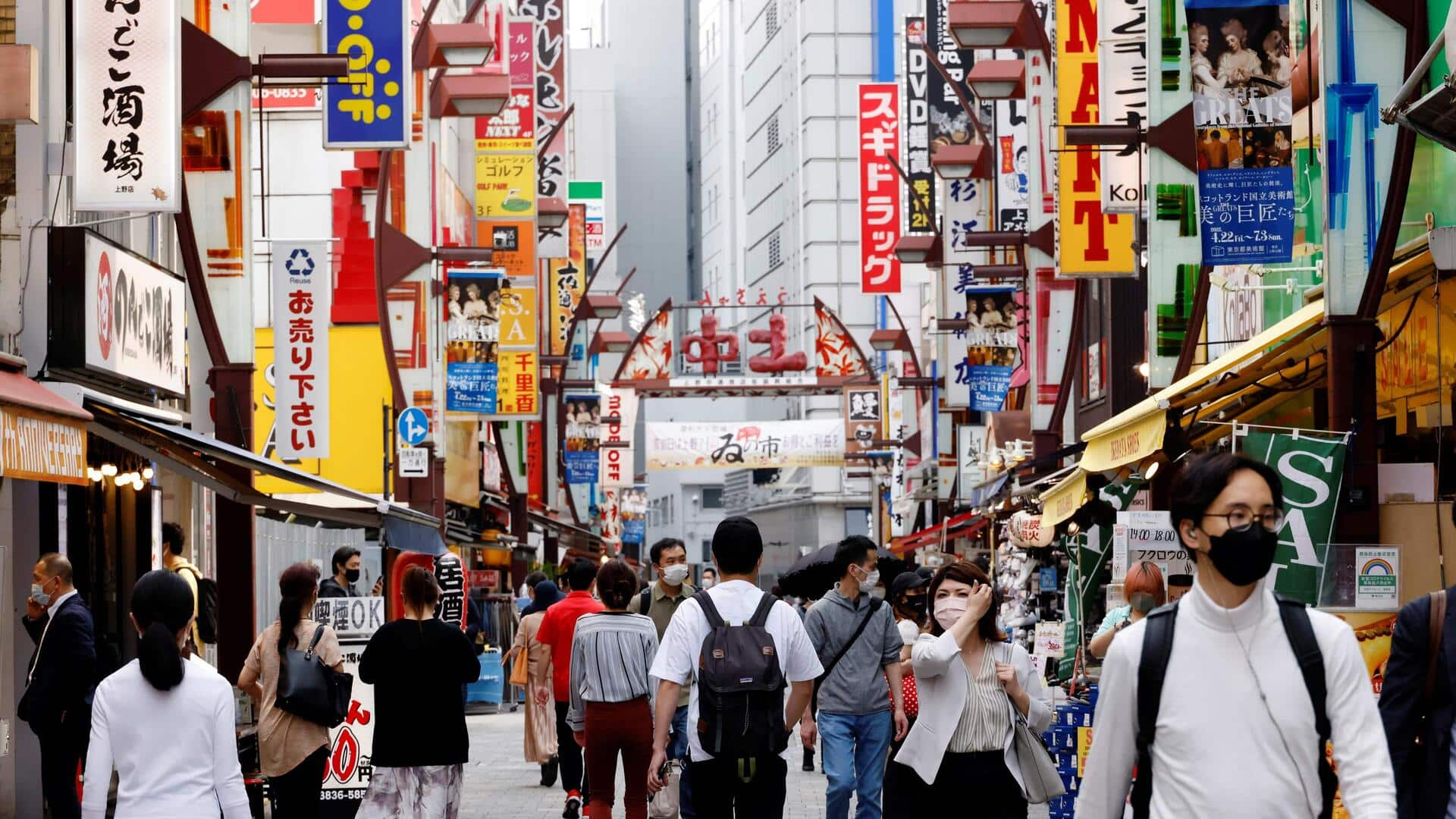
Japan's Q3 GDP shrinks by 2.9%, steepest since pandemic peak
What's the story
In Q3, Japan's economy took a bigger hit than expected, shrinking by 2.9% instead of the predicted 2.1%, according to the country's Cabinet Office. This downturn is the most severe since the peak of the pandemic in 2020 and complicates the Bank of Japan's (BOJ) efforts to phase out its accommodative monetary policy. The revised data shows that Japan's economic recovery slowed down during the summer, with concerns about weakening international economies and ongoing inflation impacting domestic spending.
Details
Consumption and business spending decline
Private consumption, which makes up over half of Japan's economy, dropped by 0.2% in Q3, compared to a nearly unchanged performance in the first estimate. Capital expenditure also fell by 0.4%, while external demand lowered real GDP by 0.1 percentage point. Daiwa Securities economist Kota Suzuki stated, "Weakness in personal consumption is likely to continue for the foreseeable future, as real disposable income is likely to extend its decline, which is seen as a factor in sluggish consumption."
What Next?
Real wages and household spending continue to fall
In October, inflation-adjusted real wages declined by 2.3% YoY, marking a 19th consecutive month of decrease. Although nominal salaries rose by 1.5%, inflation exceeding 3% offset wage growth in real terms, affecting consumers' purchasing power. As a result, household spending fell by 2.5% in October compared to the previous year, marking an eight-month streak of decline. The BOJ has stressed the importance of maintaining ultra-low interest rates until sustainable inflation of 2% and wage increases are achieved.
Insights
BOJ's policy path complicated by economic contraction
The BOJ is facing a tough call with this larger economic downturn, as it awaits signs of a positive wage-price cycle before withdrawing from its massive stimulus experiment. Market speculation about the BOJ abandoning its negative interest rate has increased, driven by comments from central bank chief Kazuo Ueda and his deputy. However, economist Nobuyasu Atago believes it is risky for the BOJ to end the negative interest-rate policy when the economy is already deteriorating.
Facts
Prime Minister Kishida faces challenges amid economic struggles
The updated GDP data and weak household spending provide little comfort for Prime Minister Fumio Kishida, who faces record low approval ratings due to a fundraising scandal and criticism over his inflation-fighting measures. If wage growth fails to keep up with skyrocketing prices, causing more consumer pain, Kishida could face opposition in the Liberal Democratic Party's next leadership election in 2024. Kishida met with BOJ chief Ueda on Thursday to discuss monetary policy and the state of the economy.